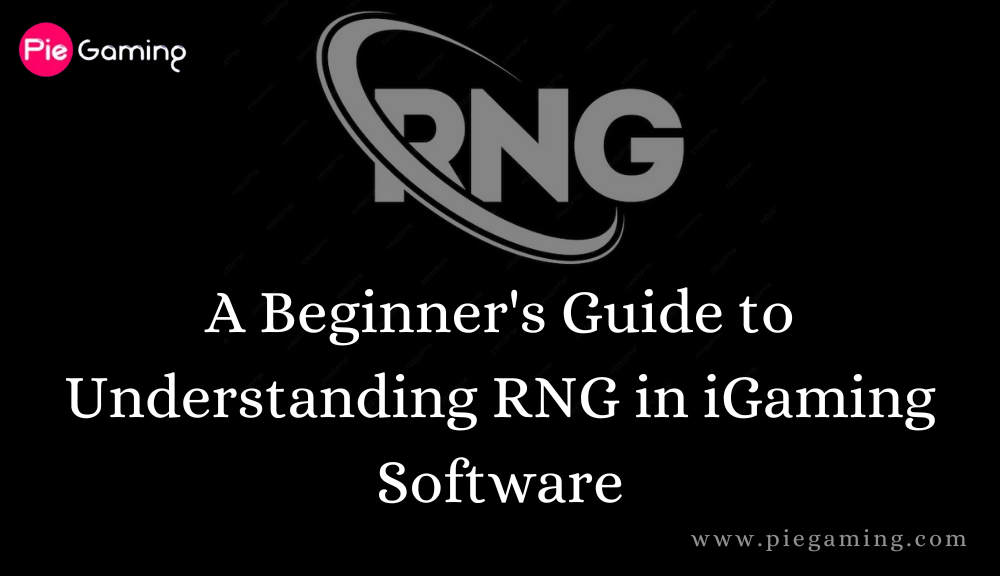Did you know that 83% of online gamblers consider fairness a critical factor when choosing an iGaming platform? This statistic reflects the immense importance of building trust among your players. But how do you guarantee that every spin, shuffle, and roll in your game is truly random and unbiased?
The answer lies in the fascinating world of Random Number Generators (RNGs)!
These sophisticated algorithms of iGaming ensure fair play and foster a secure environment that keeps the players engaged and keeps them coming back for more. In this article, we will guide you through the world of RNGs, how different types of RNGs work, and how understanding them can help you create a growing iGaming platform that gives you a competitive edge.
What is RNG in iGaming?
In the world of iGaming, where every outcome can turn the wheel towards victory or defeat, trust is crucial. Players need to know they have a fair shot of winning and that’s where Random Number Generators (RNGs) come into the picture. These algorithms constantly generate unpredictable and unbiased sequences of numbers.
RNGs are really important in maintaining the integrity of your platform because imagine an iGaming platform where the results feel pre-determined. Players won’t hesitate to take their business elsewhere. RNGs prevent this situation by ensuring that from card shuffles to slot machines, every number is truly random.
For instance, A player hits the spin button on a slot machine with 10 different pictures on each spinning wheel. The RNG creates three random numbers, one for each wheel. Each number guides the wheel on which number to land, creating the outcome on the screen.
RNGs make sure that each number has an equal chance of being chosen. So, whether it’s the first spin of the day or a thousand, every player has the same chance of winning.
How do different types of RNGs work?
While the outcome of your iGaming platform hinges on chance, the way that chance is generated can vary. This section deals with how different types of RNGs work and how they contribute to a fair and exciting player experience.
1. Hardware RNGs/ TRNGs
Hardware RNGs are like a device that uses real-world phenomena to generate random numbers. These RNGs tap things like radioactive decay or thermal noise. These are naturally unpredictable and make the random number they generate difficult to guess.
The hardware RNG then picks up these tiny moments and then converts them into digital bits (0s-1s). These random bits are then used by computers for various tasks like shuffling a card deck or creating encryption keys.
2. Software RNGs
A software RNG is a computer program that makes a number seem as if it is picked completely out of the head. But in reality, they are not truly random.
Think of a really good trick where someone picks up a random card from the deck. They shuffle the deck many times, but they always use a secret pattern to know which card will be chosen. A software RNG is just like that trick. It uses mathematical algorithms to generate random numbers.
3. Pseudorandom number generators
A pseudorandom number generator is a computer program that creates a sequence of numbers that appear to be random but are generated using a mathematical equation. The PRNGs start with a specific number called a seed. It’s like a starting point of the whole procedure. The PRNGs use a mathematical equation to manipulate the seed value. This equation creates a sequence of numbers that are unpredictable.
The output of this equation is the first random number. The PRNGs then use this new number as the seed for the next calculation, creating a chain of random numbers.
Can RNGs be manipulated?
In iGaming, RNGs are the cornerstone of fair play. The RNGs determine which cards are dealt in Poker, the spin results on a roulette wheel, and the symbols that will land on a slot machine. These algorithms produce sequences of numbers, keeping the outcomes random and maintaining fairness in the games.
However, unlike a physical location where a crooked dealer might influence the game’s outcome, fooling around with an RNG is not a walk in the park. Reputable online casinos utilize RNG-certified games that are constantly examined. Regulatory bodies or independent auditors keep an eye on online casino operations, including their RNGs. This prevents any sort of tampering with the system, as any attempt to manipulate the system would be uncovered during audits. The result can cause the operator penalty or even permanent revocation of the license.
Further, Licensed casinos understand that their business success hinges on trust. You cannot imagine the damage if the players found a biased RNG. It would destroy the casino’s reputation and drive away customers.
Licensed casinos prioritize employing reliable RNGs to build a growing ecosystem where the player can enjoy their gameplay without any sort of suspicion. After all, a happy player is a returning player is something that the online casinos understand well.
Wrapping up…
In this guide, we have provided you with a foundation for understanding RNGs in iGaming software. But remember, this is just the beginning. As your iGaming operations grow, a deeper understanding of RNGs would be crucial for you. By understanding how RNGs interact with game design, payouts, and player behavior, you will get a wealth of strategic opportunities.
RNGs become not just a technical necessity, but a silent partner that works behind the scenes to ensure fairness, foster trust among players, and ultimately drive success to your business.
